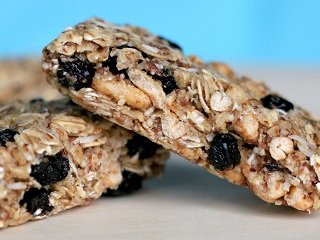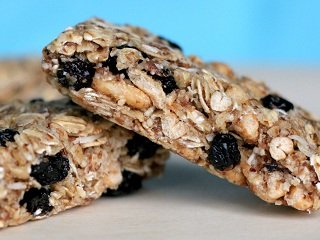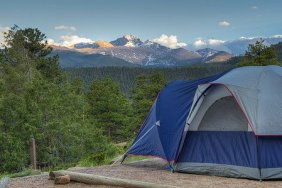 Hiking and camping trips can take a lot out of you. By the end of a day of hiking, your legs can feel like jelly and your body has expended much of its strength to keep your muscles moving. This is why it’s so important to not only stay hydrated and eat enough food, but also to make sure you eat the right foods while you’re on the trail. Today, I’ve listed some great nutrition options that go a long way towards keeping you alert, energized, and able to hit the trail with full strength each morning.
Hiking and camping trips can take a lot out of you. By the end of a day of hiking, your legs can feel like jelly and your body has expended much of its strength to keep your muscles moving. This is why it’s so important to not only stay hydrated and eat enough food, but also to make sure you eat the right foods while you’re on the trail. Today, I’ve listed some great nutrition options that go a long way towards keeping you alert, energized, and able to hit the trail with full strength each morning.
For short hikes, such as day or weekend trips, you most likely won’t be carrying a full-sized backpack and therefore won’t have a ton of room to work with. Fortunately, many companies make foods that are compact and easily packable. Beef jerky—real jerky that’s homemade or from a solid company—is a great snack to have on the trail, due to its size, as well as its balance of fat, protein, and carbohydrates. Dry fruits—cranberries, apricots, raisins, mangoes, pineapple, apples, etc—are one of the best snacks to take, because they’re loaded with energizing carbohydrates, as well as antioxidants and vitamins. Other great choices include granola and raw nuts, such as almonds, and healthy peanut butter. Granola is packed with healthy fat and carbs, while healthy nuts are filled with healthy fat and protein. Of course, I always suggest bringing GORP, due to its versatility and high content of vital nutrients, as well as energy bars from brands like Clif or Laribar, which are packed with proteins and carbs, but also have a small, easily packable size.
When your hikes last several days, simply meeting your calorie goals aren’t going to be enough, and you’ll need to make sure your body is getting all it needs. To start your day right, I recommend foods like oatmeal packets and whole grain cereals. With powdered milk and dried fruit, you can spice up these meals, as well. Also, if you have the time to boil water in a pot, you can also bring powdered eggs. Mix the eggs with water in a Ziploc bag, add any other ingredients, and carefully lower the bag into hot water to cook the eggs.
At the end of the day, pasta and rice are great choices for help you wind down and replenish your spent energy and calories. Mix pasta in a bag with powdered cheese or milk and add hot water to enjoy a satisfying meal. Rice can be served with jerky for a great source of protein, but you’ll need to transfer boxed rice to bags in order to save space.
The options listed above are great ways to make sure you stay full and energized during hiking trips, but don’t limit your menu to the foods I’ve described. If you can carry it, you can cook it, so feel free to bring whatever food you want. Check out some of my Campfire Recipes, as well as my article on GORP, to get a better idea of what foods to eat and how to prepare them. As I’ve said, the key is conserving space and ensuring you get the right nutrients. Hiking can be quite demanding, but having the right foods with you will help keep you moving and ready to tackle anything the trail can throw at you.








